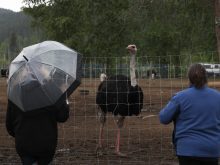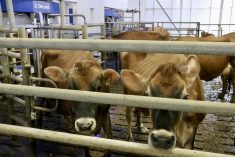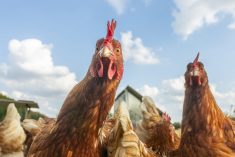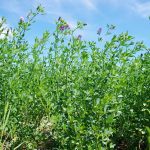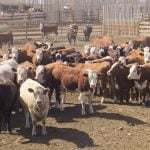Residents of Canada’s northern territories who harvest migratory wild birds and their eggs this spring are urged to take precautions as highly pathogenic avian influenza makes its way northward.
The Yukon government’s animal health unit on May 27 reported confirmed cases of high-path H5N1 avian flu in two wild waterfowl carcasses.
“Spring migration is ongoing and further detections of highly pathogenic avian influenza in the Yukon are likely,” the territory’s program veterinarian Kristenn Magnusson said in a statement.
“Livestock farmers and Yukoners who own domestic birds need to protect their birds from this virus. Avian influenza causes severe illness and death in domestic birds. This includes backyard hens and pet poultry, as well as commercial poultry farms. Pigs can also get influenza viruses and need to be housed separately from poultry.”
Read Also

Ample supplies and improved livestock sector to boost Canadian feed sector: FCC
Abundant feed grain supplies and improved profitability for the livestock sector should support strong feed demand and sales through the winter, says a new report from Farm Credit Canada.
There’s no evidence to suggest the avian flu virus can be transmitted to humans through the consumption of fully cooked game birds or eggs, Nunavut’s health department said in a separate statement May 30 after the Yukon detections were reported.
Cases of avian influenza in people generally come from close, prolonged contact with infected live or dead poultry or contaminated environments, the department said.
However, it added, individuals should still be cautious if handling wild birds, or wild birds’ eggs.
“As many Nunavummiut actively engage in spring wild bird and egg harvesting, it is important to learn the key precautions that should be taken to limit the spread of disease and minimize risk to people,” the department said.
Domestic birds
As of June 1, the number of domestic birds — including commercial and backyard-level poultry and non-poultry — impacted by high-path avian flu in Canada, since the disease’s latest run through North America began last December, has reached 1,913,700 across 95 premises.
Outbreaks in domestic birds in Canada since our last report on this site include:
British Columbia: two commercial poultry flocks at Abbotsford (confirmed May 19 and 20); a “captive wild” non-poultry flock at Richmond (May 19)l three small poultry flocks, one each in the Regional District of Okanagan-Similkameen (May 22), the District Municipality of Sechelt (Saturday) and the town of Summerland (also Saturday); and a small “non-poultry” flock in the Regional District of Peace River (June 1);
Alberta: four small “non-poultry” flocks, in the east-central Municipal District of Provost (confirmed May 13), Cypress County (May 21), Wainwright municipality (June 2) and Clear Hills County (also June 2);
Saskatchewan: three small poultry flocks, in the RMs of Golden West (confirmed May 13), Cymri (also May 13) and Indian Head (May 25) and a small “non-poultry” flock in the RM of Moose Jaw (May 13); and
Ontario: a commercial poultry flock in the Regional Municipality of York, confirmed May 18.
The new findings bring Canada’s total outbreaks in flocks classified as “poultry” by the World Organization for Animal Health (OIE) — whether in commercial-level or small flocks — to 76 so far this year across eight provinces, including 25 in Ontario; 21 in Alberta; 10 each in Saskatchewan and B.C.; six in Quebec; two in Nova Scotia; and one each in Manitoba and New Brunswick.
Further south, meanwhile, the U.S. Department of Agriculture as of Monday has confirmed cases in 184 commercial poultry flocks and 177 backyard poultry and “non-poultry” flocks, with about 37.95 million domestic birds affected across 36 states, including Alaska and all northern-tier states along the Canada-U.S. border.
New Jersey and Georgia were the most recent states to confirm cases, both in “non-poultry” backyard flocks, on May 18 and June 1 respectively. — Glacier FarmMedia Network




